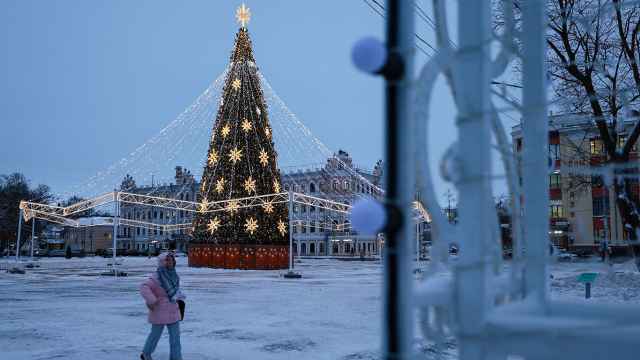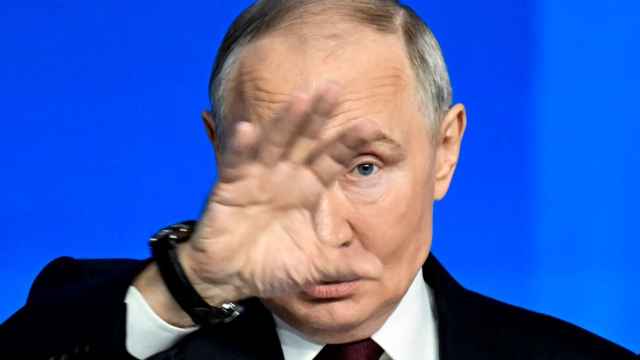President Vladimir Putin tasked the Federal Security Service with creating a unified system for the "detection, prevention and liquidation" of cyberattacks on government websites in an official decree published Monday.
The main tasks include development of methods for predicting threats, institution of monitoring to determine the levels of protection of critical information systems, and a rendering of accounts for certain computer incidents, Itar-Tass reported Monday.
The resources included in the decree are information systems and data networks in Russia itself or in Russian embassies and diplomatic institutions of abroad.
The decree came into effect Tuesday, the day it was signed. It follows on the heels of charges brought in early January against a Krasnoyarsk resident who launched a cyberattack on the president's website in May. He faces up to four years in prison.
Last week, an Internet security firm said a spy network had infiltrated government and embassy computers across the former Soviet bloc.
Dubbed Red October, the network used phishing attacks, or unsolicited e-mails to intended targets, to infect the computers of embassies and other state institutions with a program designed to harvest intelligence and send it back to a server.
Internet security firm Kaspersky Labs that the computer espionage network, discovered in October, had been seeking intelligence from Eastern European and ex-Soviet states, including Russia, since 2007.
Many of the systems infected belong to diplomatic missions, Vitaly Kamluk, an expert in computer viruses at Kaspersky Labs, said last week. He declined to name specific countries.
Kamluk said last week that the network was still active and that law enforcement agencies in several European countries were investigating it.
The FSB declined immediate comment last week when asked whether Russia had taken action to bring any suspected members of the espionage network to justice or acted to improve Internet security in light of the discovery.
The FSB requested a written query, to which it has not yet responded. The Kremlin declined immediate comment Monday when asked whether Putin's decree was linked to Red October.
(MT, Reuters)
Related articles:
A Message from The Moscow Times:
Dear readers,
We are facing unprecedented challenges. Russia's Prosecutor General's Office has designated The Moscow Times as an "undesirable" organization, criminalizing our work and putting our staff at risk of prosecution. This follows our earlier unjust labeling as a "foreign agent."
These actions are direct attempts to silence independent journalism in Russia. The authorities claim our work "discredits the decisions of the Russian leadership." We see things differently: we strive to provide accurate, unbiased reporting on Russia.
We, the journalists of The Moscow Times, refuse to be silenced. But to continue our work, we need your help.
Your support, no matter how small, makes a world of difference. If you can, please support us monthly starting from just $2. It's quick to set up, and every contribution makes a significant impact.
By supporting The Moscow Times, you're defending open, independent journalism in the face of repression. Thank you for standing with us.
Remind me later.





